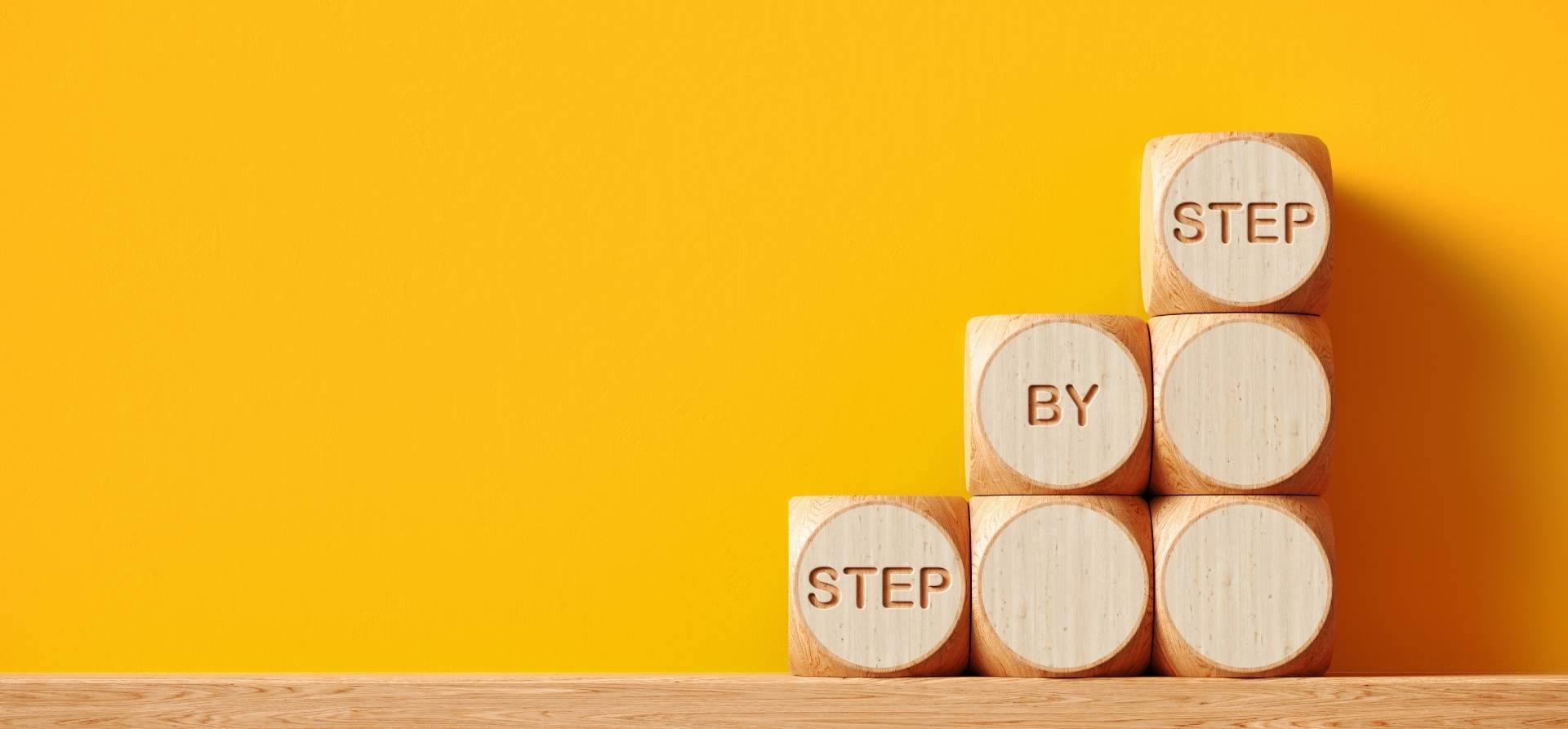Continuing our series on Covey’s 7 Habits of Highly Effective People, this post focuses on the third of Covey’s habits: Put first things first.
In case you haven’t seen the first two posts, ‘Be Proactive’ and ‘Begin with the end in mind’, the aim of this blog series is to provide a reminder of these ever-valuable habits, with a personal leadership twist. Each blog gives you insight into each habit and an idea of how you can develop it.
Collect all seven habits crib sheets for a complete guide to developing effective personal leadership through the lense of Covey’s 7 Habits of Highly Effective People. We’re on habit three now, so why not grab a coffee and have a read…
What is Habit Three?
Put first things first
Let’s define it
This habit is all about halting the procrastination and getting on with things!
What does it mean?
You’re sat in your kitchen, your mother-in-law is coming round and you know you should tidy things up. She’s going to raise an eyebrow and the right thing to do right now is crack on with the washing up. Yet, you find yourself doing other things; scrolling through your phone, chilling on the sofa…sometimes we even find the motivation to do things we’ve avoided for weeks like dust of our trainers and head to the gym! How crazy is that?! We justify not doing the washing up by doing something more challenging but that makes us feel better about ourselves. That balances out right?! Well done for going to the gym and all, but that isn’t going to make the mother-in-law’s raised eyebrow sit any more comfortably with you!
Putting first things first is about prioritising effectively and avoiding time wasting. It’s all too easy to avoid the challenging tasks and get on with the things that we feel comfortable doing, but ultimately this leads to important things being left behind, with often complex consequences. At work, this often manifests with us doing the tasks we like and know we’re good at and perhaps neglecting the more urgent/important business needs.
Why is it important?
Putting first things first is a really important component of good personal leadership. When this habit is practised, you are considering the impact of your actions on others, remaining disciplined and retaining personal integrity. When you put last things first, you can form negative habits. In the above example, you may find that, upon arrival, your mother-in-law raises her eyebrows and then reaches for the washing up gloves. In your mind, this reinforces not needing to do the task in hand, creating a habit of ‘well if I don’t do it, maybe someone else will’. This leads to poor personal management and can have a significant impact on your relationships with others.
Develop this habit: Practical tools
As with the other habits, you first need your ROAD map (Responsibility, Outcomes, Action, Discipline) – a plan that details how you are going to start putting first things first. Once you have this, I’d recommend sharing it with someone. You could create an ‘accountability triplet’ – speak with a couple of like-minded people and see if you can each hold one another accountable for your objectives. The accountability triplet allows each one of you to be held accountable by another, sharing the responsibility and creating a positive feedback circle to improve your personal leadership.
A key element of developing this habit is time effectiveness. We all have the same number of hours in a day and yet our use of those hours can be so different. Consider taking a look at Covey’s time management matrix to help you decide what to prioritise. The matrix splits tasks into levels or urgency and importance. I like to call these four quadrants Allocate (plan ahead), Accelerate (prioritise), Eliminate (push away), Delegate (pass over). These words could help you to focus on first things first and reallocate time for the less urgent/important things.
This habit has such a huge impact on your interactions and relationships with others that it’s worth some serious consideration. Think about how you want to be perceived and what you need to put first in order to be perceived in that way.
I hope there are some useful things in here for you to take away and have a think about. Look out for the next in our ‘seven habits’ series, a personal favourite of mine: ‘Think win-win’!













